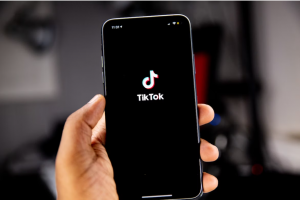Millions of Indians have joined homegrown social media platforms since New
Delhi banned a slew of Chinese apps, including TikTok, amid growing tensions
between the giant neighbours, industry officials said Thursday.
The ban comes as India steps up economic pressure on China following a
border battle last month in which 20 Indian soldiers died.
The 59 banned apps include video-sharing giant TikTok, Helo and Likee, with
authorities accusing them of activities “prejudicial” to the
“sovereignty and integrity of India”.
Prime Minister Narendra Modi, who has a huge social media profile, threw his
weight behind the campaign by closing his account on China’s Weibo platform on
Wednesday.
His photograph and 115 posts made over the past five years were deleted at
the request of Indian authorities, the Chinese company said.
India’s 1.3 billion population is a key market for global internet players
and homegrown app platforms Sharechat and Roposo said they had seen a huge
surge in new users since Monday’s ban on their Chinese rivals.

Sharechat said in a statement that its video platform had clocked 15 million
new downloads — sometimes at a rate of half-a-million every 30 minutes — in
the 48 hours following the ban.
It now has at least 150 million registered users, it said.
“We welcome the move from the government against platforms that have
had serious privacy, cyber-security and national security risks,” Berges
Malu, public policy director for ShareChat, told AFP.
Ban brings tech
boost
“We believe this move will help create a level playing field (for
Indian platforms),” Malu added.
Some 10 million new subscribers have joined the Roposo video app, Naveen
Tewari, chief executive of owners InMobi, told AFP, bringing its user base to
75 million.
An estimated 120 million Indians were TikTok users before the ban.
Also read: ‘All of a sudden, I have lost everything,’ says 19-year-old TikTok star
Tewari said the app ban would give local platforms the chance to become the
world’s fourth major tech hub alongside the United States, Russia and China.
“Such opportunities don’t come easily,” he added.
The Indian industry has long been pressing for action against Chinese apps
which dominate the market, with Sharechat and Inmobi calling for the platforms
to follow Indian laws and values.
There are also fears foreign apps could influence domestic affairs in areas
such as politics.
“Deep penetration of Chinese platforms in an open democracy like India
makes its future election processes vulnerable to outside interference and
manipulation,” said one senior New Delhi-based digital industry analyst,
speaking on condition of anonymity.
Observers say retaining the new followers will be the main challenge for the
Indian upstarts, which will now have to invest in staff and content to keep
audiences.
Arvind Gupta, founder and head of the DigitalIndia Foundation, told AFP that
Indian firms also had to answer “the strategic concerns around privacy and
data security” while taking advantage of the exit of TikTok and other
rivals.
“This vacuum also makes India’s digital landscape much more attractive
for investment… from other democratic and open societies,” said Gupta, a
former technology head for India’s ruling Bharatiya Janata Party.






